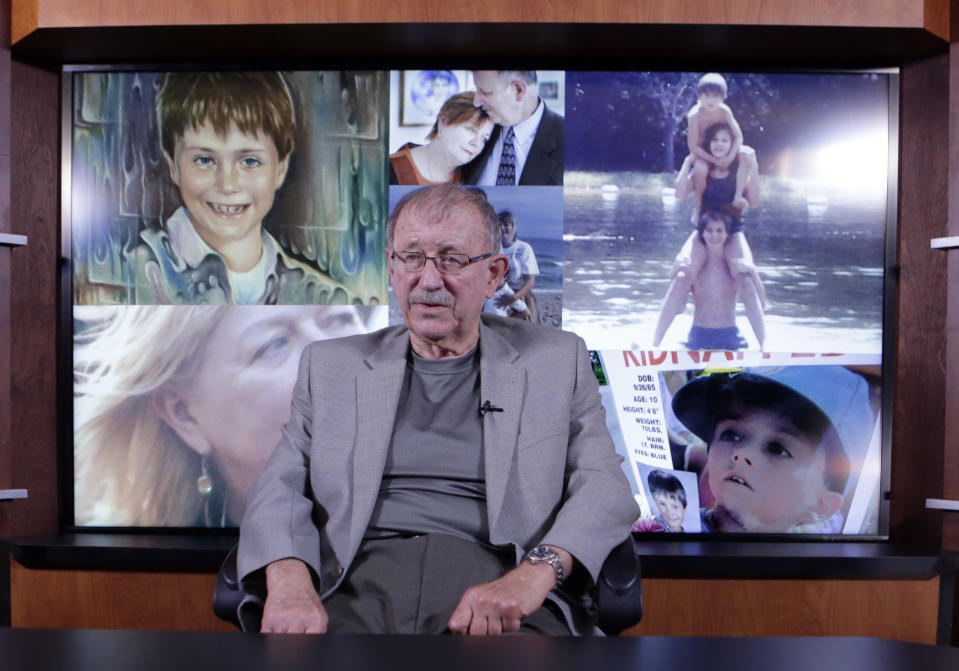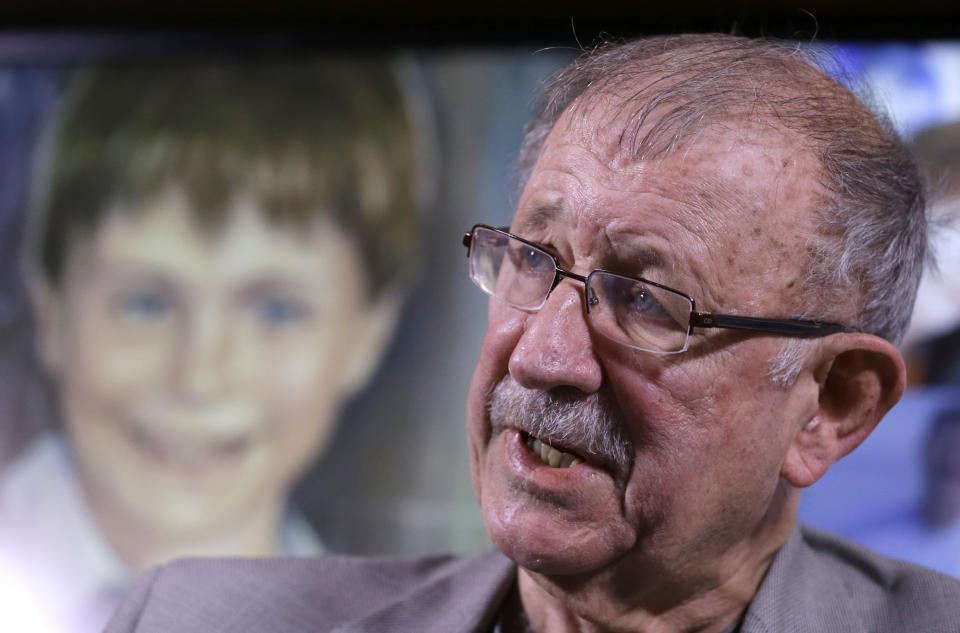Jimmy Ryce dad: killer's execution brings justice
MIAMI (AP) — In the 18 years since 9-year-old Jimmy Ryce's rape and murder, his father and his mother, before her death, tried to alleviate the pain of their family's tragedy by working for society's good. They pushed for new laws regarding confinement of sexual predators and worked to improve police procedures in missing child cases.
But with the killer's scheduled execution set for Wednesday, Don Ryce said the death of Juan Carlos Chavez will finally bring some measure of justice. Barring a successful last-minute appeal, Chavez is scheduled to die by lethal injection at Florida State Prison in Starke.
"People sometimes say that will bring you closure. There is no such thing as closure, hate that word. It doesn't resolve everything for you. My child will not suddenly come back if Chavez is executed," said Ryce, a 70-year-old retired labor lawyer. "But it's important to close that chapter out in my life and to feel like justice has finally been done for my son."
Ryce said in a recent interview that in the years since Chavez was arrested for Jimmy's slaying he felt "the universe is a little bit twisted" because he has also lost his wife, Claudine, and daughter Martha while Chavez remained alive.
Chavez abducted Jimmy at gunpoint after the boy got off a school bus on Sept. 11, 1995, in rural southwestern Miami-Dade County. Trial testimony showed Chavez, who worked on a local ranch, raped the boy and then shot him when he tried to escape, dismembering his body and putting the parts in planters that were then covered in concrete.
Despite an intensive search by police and volunteers, regular appeals for help through the media and distribution of flyers about Jimmy, it wasn't until three months later that Chavez's landlady discovered the boy's book bag and the murder weapon — a revolver Chavez had stolen from her house — in the trailer where Chavez lived. Chavez later confessed to police and led them to Jimmy's remains.
Ryce said he and his wife became determined to turn their son's horrific slaying into something positive, in part because they felt they owed something to all the people who tried to help find him. They also refused to wallow in misery.
"You've got to do something or you do nothing. That was just not the way we wanted to live the rest of our lives," he said.
The Ryces created the Jimmy Ryce Center for Victims of Predatory Abduction, a nonprofit organization based in Vero Beach that works to increase public awareness and education about sexual predators, provides counseling for parents of victims and helps train law enforcement agencies in ways to respond to missing children cases.
"One of the problems we saw was, the police didn't know how to handle this kind of a case," Ryce said. "You don't want to start from scratch. You lose kids that way. They practice together so they know how to respond."
The organization has also provided, free of charge, more than 400 bloodhounds to police departments around the country and abroad. Ryce said if police searching for Jimmy had bloodhounds they might have found him in time.
"The bloodhounds are the one thing that might have made a difference to Jimmy," Ryce said.
Another accomplishment was 1998 passage in Florida of the Jimmy Ryce Act, versions of which have also been adopted in other states. Under the law, sexual predators found to be still highly dangerous can be detained through civil commitment even after they have served their prison sentences. Such people must prove they have been rehabilitated before they can be released. Chavez had no criminal record, so the law would not have affected him.
The Ryces also helped persuade then-President Bill Clinton to sign an executive order allowing missing-child flyers to be posted in federal buildings, which they had been prevented from doing for their own son.
"It made us very angry, because it was so stupid," Ryce said.
Chavez, 46, was convicted in 1998 by a jury in Orlando, where his trial was moved because of the intense media scrutiny in South Florida. He testified in his own defense, claiming his confession was improperly coerced by police and attempting to blame his landlord's son for the killing.
He was found guilty of murder, sexual battery and kidnapping.
Chavez's most recent round of appeals have focused on claims that Florida's lethal injection procedure is unconstitutional, that he didn't get due process during clemency hearings and that he should have an execution stay to pursue additional appeals in the federal courts. The Florida Supreme Court rejected all those arguments Jan. 31, but Chavez is still pursuing federal appeals.
Ryce said he blames Chavez not only for Jimmy's death, but also the 2009 death of his wife from a heart attack at age 66 and the suicide last year of his 35-year-old daughter. He still has another son, 37-year-old Ted Ryce, who lives in the Miami area.
"So many of my family members are dead, directly or indirectly because of Chavez, and he's still living. That does not feel right. It is not right," Ryce said.
___
Jimmy Ryce Center: http://www.jimmyryce.org/
___
Follow Curt Anderson on Twitter: http://twitter.com/Miamicurt


